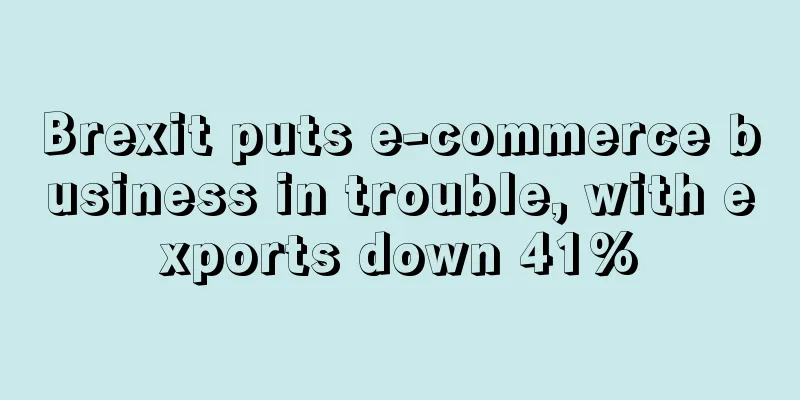Scrapped goods worth 140 million! Shenzhen's big sellers were hurt by Amazon

|
As we all know, in 2021, the cross-border e-commerce industry experienced a major reshuffle due to fake reviews. Many sellers suffered a heavy blow in this "Amazon account suspension wave" and have not recovered yet. Some large sellers need to clear their inventory by the end of this year, and countless goods have been directly scrapped.
On the other hand, false reviews have now attracted the attention of relevant US departments, which are formulating new regulations and trying to curb this problem through high fines.
The aftermath of "Amazon banning accounts" has resulted in over 100 million yuan worth of goods being scrapped
In June 2021, the brand stores such as RAVPower, Taotronics, and VAVA under Zebao Technology, a subsidiary of Xinghui Holdings, were banned and sales were suspended by the Amazon platform for non-compliant reasons such as "reviews of products or services."
Since then, Zebao's revenue has dropped significantly. However, since the "Amazon account ban" incident, it has not fallen into despair, but has been working hard to try to get back to the top.
Not long ago, Xinghui Co., Ltd. responded to the impact of the "Amazon account blocking" incident, its response measures and results in its announcement on the Shenzhen Stock Exchange's "Reply to the Inquiry Letter on the 2022 Annual Report".
After an Amazon seller’s account is blocked, there are two main issues to deal with: one is the funds in the account, and the other is the inventory.
It can be seen from the announcement that at the beginning of 2022, the "Amazon account blocking" incident brought Zebao 670 million yuan of inventory. In 2022, it sold 420 million yuan to the outside and scrapped 140 million yuan. The scrapped product categories include power supplies, Bluetooth audio, small household appliances, computer and mobile phone peripherals, etc. Among them, small household appliances have the largest backlog of inventory and scrapped goods value, which are 330 million yuan and 74.8 million yuan respectively.
At the end of 2022, Zebao’s inventory of goods affected by the "Amazon account blocking incident" was worth 110 million yuan, and the age of the goods was more than one year.
Among them, the inventory amount of the sealed stores at the end of the year was 8.5158 million yuan. Since this part of the inventory could not be withdrawn by applying for withdrawal in the backend of the sealed stores as of the end of 2022, it could not be sold at a discount on the Amazon platform, nor could it be sold at a discount after withdrawal, and the age of the goods was more than one year. Therefore, Zebao judged it as inventory with no commercial value, with a net realizable value of 0, and a full provision for inventory impairment was made; in addition, as of the end of 2022, the inventory amount of defective and second-hand products was 4.9187 million yuan, and the age of the goods was more than one year. It was judged by it that it could not be sold, and a full provision for impairment was made.
Xinghui Co., Ltd. said that it expects that the "inventory affected by the Amazon account blocking incident" will be sold out in 2023.
The "Amazon account blocking" incident dealt a heavy blow to Xinghui Co., Ltd.'s cross-border e-commerce business. Zebao, which suffers from "Amazon addiction", saw its sales revenue on the Amazon platform plummet by 69.53% in 2022 compared with 2021.
Like many of its peers, it also tried to use a "multi-platform, multi-channel" business strategy to pull itself out of the quagmire. This strategy has proven to be effective. In 2022, sales revenue from channels such as Walmart and other non-Amazon third-party platforms showed an upward trend compared with the previous year, with the sales growth rate of the Walmart platform reaching 143.00% and the sales growth rate of other platforms reaching 84.35%.
In addition to online channels, it has also established offline sales channels and has local subsidiaries in the United States, Germany, the United Kingdom and Japan to be responsible for localized offline sales operations and management.
In 2021, Zebao Technology achieved operating revenue of RMB 605 million through non-Amazon channels such as its own platforms, Walmart platforms, and offline channels, a year-on-year increase of 92.03% from RMB 315 million in 2020.
The proportion of cross-border e-commerce business in the total revenue was 23.46%, an increase of 16.87 percentage points year-on-year compared with 2020, gradually reducing its dependence on Amazon's single platform.
It is worth mentioning that it has also quickly opened up the offline + online market by acquiring other brands. In 2021 and 2022, it completed the acquisition of a total of 70% of the equity of France's EURO-TECH. It is reported that most of EURO-TECH's business is in Europe. It has relatively complete supermarket resources in France and has established a stable cooperative relationship with mainstream large supermarkets in France. It has certain brand and channel advantages, which is conducive to Zebao Technology's further expansion and layout of offline markets in France and Europe. In 2022, the brand business contributed approximately 293 million yuan in revenue to Zebao, accounting for 23.86% of Xinghui's e-commerce business sales revenue in 2022.
After more than a year of self-rescue, Zebao has escaped from the quagmire of the "Amazon account ban" incident. The financial report shows that Xinghui Co., Ltd. has turned losses into profits in the first quarter of 2023, with a consolidated net profit of 5.5813 million yuan.
After the "Amazon ban" incident, the issue of compliance has been emphasized, but many sellers still do not take it seriously. Perhaps it is precisely because of this that the relevant US departments decided to formulate policies to crack down on false reviews.
The FTC is cracking down on fake reviews with a maximum fine of $50,000
Not long ago, the Federal Trade Commission (FTC) proposed new rules for businesses that buy, sell, and manipulate online reviews. If these rules are approved, companies that manipulate reviews will be hit hard: consumers will be fined up to $50,000 for each fake review they see .
This is the most severe measure the federal government has taken so far to stop the market for buying and selling fake reviews. Although it does not directly hold Amazon and other platforms responsible, if this penalty is implemented, I believe that its control over reviews will become stricter.
“Anyone who has shopped online knows that it’s very difficult to actually get objective information about a product because there’s so much commercial misinformation, so many deceptive reviews,” said the director of the FTC’s Bureau of Consumer Protection.
Consumer advocacy groups and researchers such as U.S. PIRG estimate that as many as 30% to 40% of online reviews are fabricated or untrue.
There are global businesses that specialize in providing fake reviews to scammers and merchants looking for shortcuts. In the age of artificial intelligence like ChatGPT, which can generate very human-like text, this problem has the potential to explode.
The FTC’s view is that fake reviews have always been illegal because they mislead consumers, but its proposed rules would draw some clear lines, identify responsible parties and empower the FTC to take more action.
The rules require two months of public comment before being compiled. The new rules were proposed in late June, which means the text will be published in late August or early September.
So what kind of behavior would violate the rules?
It is reported that this includes reviews that misrepresent someone's experience using a product, as well as reviews that claim to be written by someone who does not exist. Insiders such as company employees are also not allowed to write reviews without clear disclosure.
These regulations apply not only to people who write fake reviews, but also to middlemen who buy fake reviews and to companies that pay for those reviews and know (or should have known) that they were fake.
It’s worth noting that the rules don’t explicitly prohibit giving gift cards to legitimate customers who leave reviews, as long as they aren’t asked to express a specific opinion, though if the amount given is significant, it’s best to disclose that.
The new rules also explicitly prohibit other illegal practices, such as "review consolidation," where a merchant replaces a product listing page full of legitimate reviews with another product that these customers have never actually used. Earlier this year, the FTC took its first enforcement action against this practice, fining a health supplement manufacturer on Amazon for $600,000. Zebao Technology |
<<: Amazon's latest adjustment affects more than 30,000 sellers, and some sellers may go bankrupt
>>: A common word infringed the rights of the seller, and multiple stores were shut down
Recommend
Net profit of 145 million! Outdoor tycoon becomes popular in Europe and America
In the post-epidemic era, the outdoor economy con...
Pretending to resign? Tokyo Olympic Organizing Committee President apologizes for "degrading women" remarks
As the date approaches, the Tokyo Olympics in Jap...
A total of 7 asymptomatic infections have been reported, and Yantian Port has suspended the entry of export heavy cabinets
A total of 7 asymptomatic infections have been re...
What is Jump Send
Jump Send is a product developed by Jungle Scout&...
Instagram releases 2022 Annual Report, the latest trends in beauty and fashion are here
Recently, Instagram surveyed 1,200 social users a...
Alibaba releases third quarter financial report: Globalization continues to progress, overseas consumers exceed 300 million for the first time
On the evening of February 24, Alibaba Group anno...
With offline sales sluggish, Thai fast fashion brand Pomelo will launch Prism platform
JD.com-backed Thai fashion e-commerce startup Pom...
Marketing trends in 2021: Marketers plan to focus on these two aspects!
Iterable, a cross-channel marketing platform, sur...
What is Shopee Preferred Seller? Shopee Preferred Seller Review, Features
Shopee Preferred Sellers are screened by Shopee an...
Two more sites have launched inventory performance indicators, and storage capacity will be limited if the indicators are not met!
According to official news from Amazon, starting ...
Etsy's first-quarter sales increased 144%, and its growth in the United States is encouraging
Recently, Etsy announced gratifying first-quarter...
What is Zhongliansheng International Logistics? Zhongliansheng International Logistics Review, Features
Zhongliansheng International Logistics is a third...
What is ContentProz
ContentProz is a tool that sellers can use for co...
Zalando added nearly 8 million new users in 2020 and placed 186 million orders
The epidemic in 2020 caused the closure of a larg...
It's going viral! TikTok has more than 1 billion monthly active users worldwide
On September 27th local time , TikTok published a...









